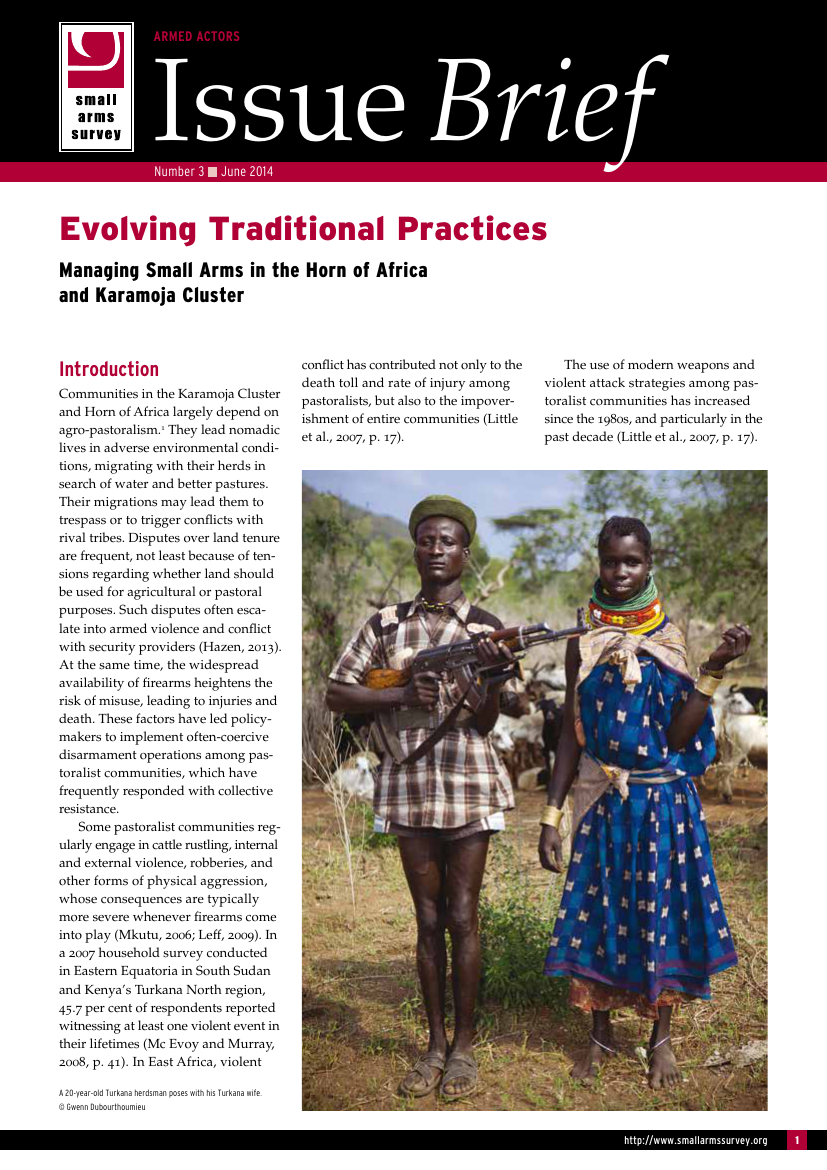
Evolving Traditional Practices: Managing Small Arms in the Horn of Africa and Karamoja Cluster (Armed Actors Issue Brief 3)
In vast areas of East Africa, violent conflict involving pastoralist communities, and exacerbated by the prevalence of firearms, has resulted in large-scale death and injury, as well as the impoverishment of entire communities.
Many communities reliant on agro-pastoralism are situated in the Karamoja Cluster and in the Horn of Africa. The Karamoja Cluster comprises the border regions of south-western Ethiopia, north-western Kenya, south-eastern South Sudan, and north-eastern Uganda; the Horn of Africa is made up of Djibouti, Eritrea, Ethiopia, and Somalia.
These communities' nomadic migrations in search of water and better pastures for their herds may drive them to trespass on or to trigger conflicts with rival tribes; leading to frequent disputes which often escalate into armed violence and conflict with security providers. At the same time, the widespread availability of firearms heightens the risk of misuse, leading to injuries and death.
Most of these communities have integrated small arms management into their traditional dispute-settling practices in order to regulate firearm misuse and theft.
Evolving Traditional Practices: Managing Small Arms in the Horn of Africa and Karamoja Cluster, an Issue Brief from the Small Arms Survey and Danish Demining Group, examines local demand, use, and management of firearms in this region.
Evolving Traditional Practices
- Pastoralist communities have more firearms yet feel less safe than non-pastoralist populations. Many pastoralists perceive a need to own firearms for protection, but they generally describe firearms as dangerous.
- Firearm theft is relatively rare among pastoralist communities.
- There is a recognized need for targeted awareness raising, educational programmes, and safe storage training to prevent accidental shootings.
- Rural communities in the Karamoja Cluster and the Horn region adopt similar traditional practices to prevent and punish firearm theft, armed violence, and accidental shootings.
- Participants in this study suggested a range of measures for reducing the misuse of firearms, including disarmament programmes and safe storage training, as well as broader peacebuilding activities, social policies, and education.
This study will assist local leadership and communities to reduce armed violence and strengthen local and regional firearms control initiatives.
See also the Methodological Annexe.
Have your say about Small Arms Survey publications and products: take 5 minutes to fill out our questionnaire.